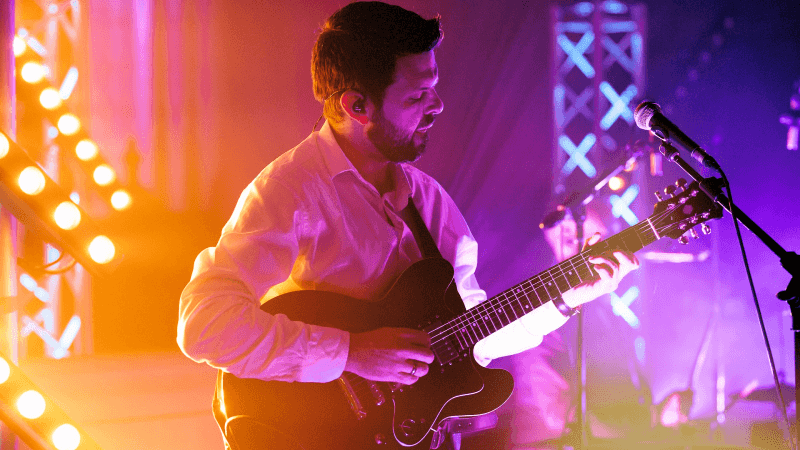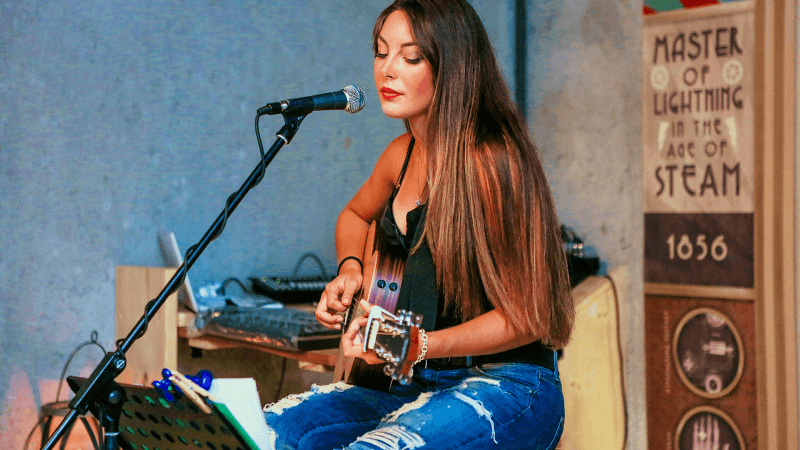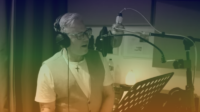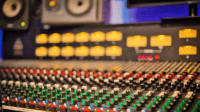How do you know if your song is ready to record? Let’s look at pre-production and arrangements
You’ve written some songs, how do you decide if you’re ready for the studio?
You’ve taken the time to craft your songs, maybe with a group, maybe as a solo artist. Now you’re looking to make a recording, be it a single, an EP or even an album.
This article looks at the common paths people take when they make recordings and offers guidance and a checklist on how to make the most of your studio time in the process of recording.
What makes a recording session successful or a flop?
Do you need help with your song arrangements?
Getting started in the studio
It generally happens that people pick up the phone to a studio and say, “I / we’ve got some songs and a budget, can we book a session?” And they want to record as many of these songs as possible in the time available.
However, more often than not, when they reach the studio, they find it takes longer and it’s a lot harder than they imagined.
But why does this happen?
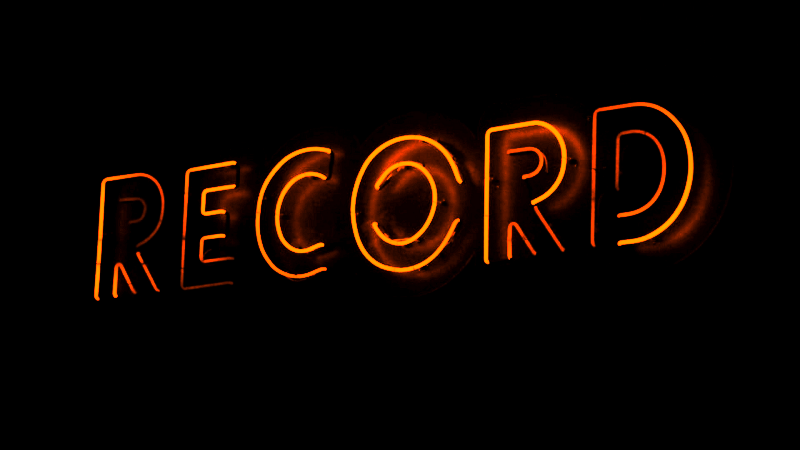
As a rule of thumb, you should expect to add a day to what you estimate it might take.
The studio environment is a microscope
Performing your songs in a recording studio is different to that of a live environment in that you will hear every detail. The studio recording is like a magnifying glass; it will show up where things are and are not working. Plus, it is a controlled environment and can be harder to recreate the energy and vibe you get when performing live. What works on stage doesn’t necessarily fly in a recording. The studio focuses on how sounds are working together, not what the energy on stage is like, so be prepared for that.
Listening back you will notice more
Sometimes it’s only when you get into the studio that you notice what the bass player has been playing all this time, or the drummer realises what the singer has been singing all this time. It can undo a band – simply because microphones ‘hear more’. Listening back you will notice that you sound different to what you thought, or you’ll realise that you’re masking somebody else, or someone else is hiding you!
Even solo artists & singer-songwriters can find themselves unprepared for how long it takes to get their songs sounding great.
A recording will show up all the errors of an arrangement…
…and a successful recording starts with a good musical arrangement.
Making a record is hard. You have to lock things together in such a way that there’s coherence and clarity. A great arrangement realises a song’s potential. A lesser arrangement will distract the listener and draw attention to problems, and take their focus away from the song. We want to avoid imbalance, rhythms that fight and tonal clashes. The time-old adage that ‘less is more’ will often rescue a cluttered arrangement. Consequently a good arrangement empowers everyone playing because it creates an awareness of what is going on and results in a good mix.
Get expert ears on your song
Send me your song, I’ll have a listen and get back to you.
Achieving a hot, slick arrangement where everyone knows their part and where they fit in the overall sound takes the most magical of elements…
preparation.
First you want to be able to play your instrument freely – so you’re not bogged down in ‘overthinking it’. Second you want to have played and rehearsed so you have an idea of what you’re reaching for.
Third, it’s definitely ok to need help with arrangements
As artists you’re expressing your creativity in music, but you may not be as skilled to present the music is the most complementary way. If you’re not trained in the art of arrangement or orchestration, then it’s likely when you reach the studio, you’ll find there are clashes or places where your song needs work.
If you don’t know how to make effective arrangements then find a producer-arranger to help you.
You can use the studio for pre-production (especially in a pandemic!)
What is pre-production in music?
Pre-production is the process of forming and refining your musical ideas. Basically, you spend time working out your songs’ arrangements by making rough demo recordings to figure out what’s going on, the instrumentation and the creative design.
The old classic approach of gigging to rehearse and refine isn’t exactly possible right now.
Instead this process is well suited to working with a producer or recording engineer to select songs, draft arrangements and lay down some rudimentary parts (socially distanced!)
It’s really common to use the studio as place to get your demos done quickly. You can work fast, skim the surface, put down your ideas, and use them to get ready for when live gigging is back. Bring on 2021!
Pre-production discovery call
Schedule a consultation on Zoom so I can give you an idea of what it would take to produce your songs.
Arrange a call back
Or use your home recordings as a starting place
Most artists these days have got at least some recording kit at home, even if it’s just a video camera on a phone. This is a great starting place to run a few demos yourself. Listen back and work on your songs, get them tight so you’re better prepared for the studio.
Send your home recordings to me or someone like me and ask ‘what do I need to do?
Ask “Is this ready to record, have you got any ideas for me?”
By doing so you establish a working relationship with a producer and a studio, which gets the ball rolling with making your recordings.
It might be that you then do a pre-production session in the studio too, where you work with your recordist and producer to do the development together before you spend out on days in the studio making an EP or album.
What to expect during pre-production
A typical pre-production session
It’s common for artists and band to want to speed through their recordings, but it really pays off to spend this time in the creative planning.
Make acoustic reductions / rough recordings
For example, a singer-songwriter would bring their guitar to the studio and we lay down quickly all their different songs so we have a template to work with. That would mean recording just guitar and vocal to get those songs outlined.
Listen back and discuss types of arrangement
We’ll talk through the feel, tempo, sounds, even key if necessary. We might ask, does the song need extra musicians to play a part that you might not be competent enough to play?
Reference tracks
Importantly, we listen to any songs that you might have been thinking of or been inspired by. These reference points are really helpful to make sure you and your producer understand the same vision for the song.
Benefits of pre-production
Ultimately it’s about making the best music
Investing in pre-production and getting help with arrangements, even if it’s just a consultation, will save you time and money. It will also save you from feeling lost, frustrated or disappointed when you come to record in the studio. You’ll be giving yourself the best chance of making the record that you imagined.
Checklist: ‘Am I ready to record my music?’
Have you got a clear vision of your song in mind?
Can you provide any reference songs to help communicate your vision to your producer or studio engineer?
Are you organised? Have you jotted down the song structure, e.g. verse, chorus, verse, chorus, bridge, chorus etc?
Do you know the parts that you want to record (even as a mental note)?
Have you decided what tempo you’ll be working at?
Have you made any home recordings (even on camera phone) and listened back?
How well do you know your song?
Can you play your part without making mistakes?
Can you sing your song(s) without a lyric sheet?
Can you typically pick up your song in any section and play it from that point forwards?
Can you play in time with a click track?
In summary, making a recording is a collaboration.
It’s team work. You need both the music-makers and those who are focused and experienced in bringing sounds together in order to make something really good. I wish you the best in getting the best results!
Pre-production discovery call
Schedule a consultation on Zoom so I can give you an idea of what it would take to produce your songs.
Arrange a call back
Get expert ears on your song
Send me your song, I’ll have a listen and get back to you.


